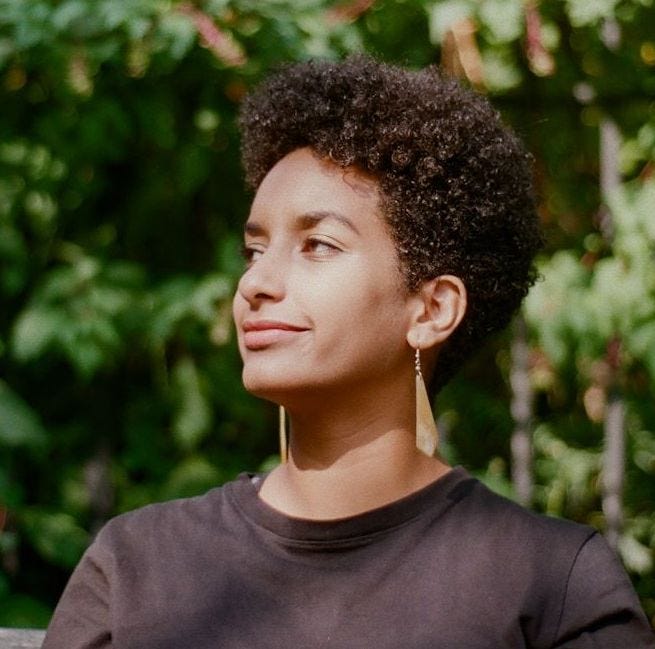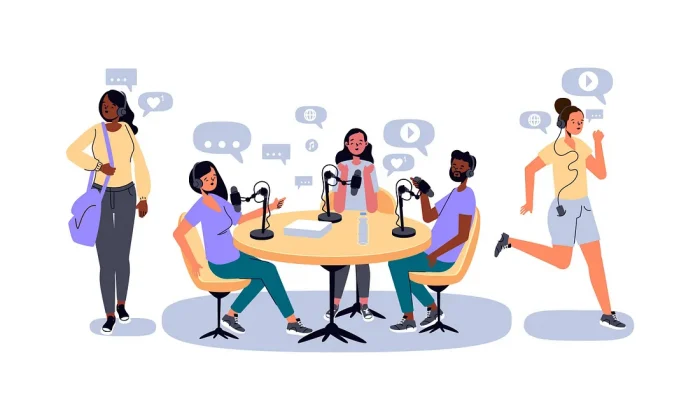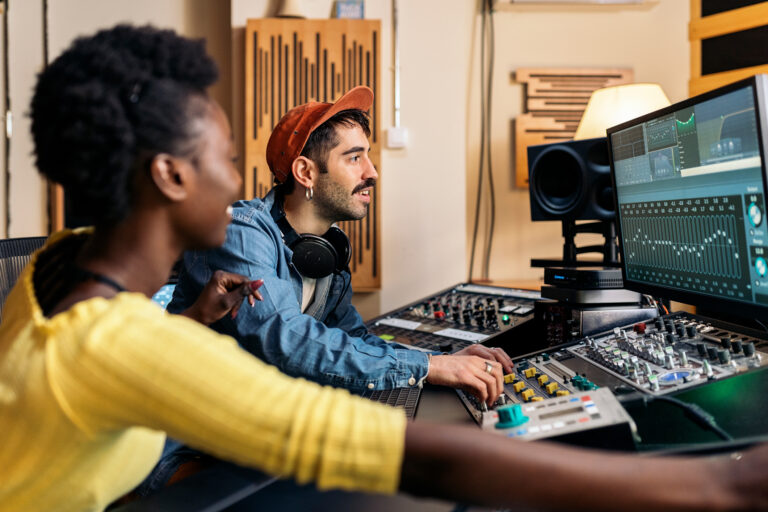About a minute and a half into I Want To Report A Theft — an episode of the Resistance podcast that looks at the issue of repatriating art and artefacts taken from their country of origin as spoils of colonial conquests — we hear its central figure Mwazulu Diyabanza make his impassioned argument. In French.
The clip plays for under 10 seconds, and may not be immediately understandable to those who don’t speak the language. But you can understand the passion and anger that fuels Diyabanza. You want to hear more from him.

The story came to Bethel Habte, a reporter and producer for Resistance, a Gimlet media and Spotify original podcast, from one of her colleagues. Her colleague had seen a YouTube video of Diyabanza walking into museums in Europe and pointing out that much of the art displayed on the walls and behind glass museum cases had been pillaged.
Diyabanza, as Habte describes in the episode, crosses a line. In the video she watched, he makes an attempt to retrieve the objects displayed at the Quai Branly museum in Paris. He told the police that arrived to arrest him that he wanted to report a theft.
It turns out that there is a personal connection to his assertion that these museum exhibits are, in fact, stolen goods. Growing up, his mother told him that European colonizers stole three important objects from his great-grandfather, who was a governor of a province in the Democratic Republic of Congo when King Leopold II of Belgium colonized the country.
It was a brutal rule. Although Habte is a child of Eritrean immigrants, she hadn’t been aware of the subtexts of the story.
“There was a Holocaust there that nobody ever talks about and that I barely knew the details of before working on this story,” she says. “ People were forced to mine rubber and ivory, and if they didn’t meet their quotas. They would have their hands cut off.”
This was an important story to tell—especially in Diyabanza’s voice. And, he speaks French.
It’s easy enough to translate an interviewee’s voice for a print story. In a visual format, you can run subtitles. In audio, however, working in translation can add extra layers of work and deter some reporters from pursuing a story.
“I don’t think it was even a question . . . . We can get a translator,” says Habte. “Where we did have a specific discussion about what we were going to do — it was, how do we find the person to voice the English [translation].”
If Mwazulu could speak English, how would he speak English?
Since this story was produced during the pandemic, Habte couldn’t travel to France to report on the story herself. She hired a local British-Nigerian filmmaker Rosie Collyer, who was also fluent in French, to conduct the interview. Turns out that Collyer had a friend with the same vocal register as Diyabanza.
The process needed to be seamless. There is a lot happening in the story. Habte adds, “There’s Mwazulu, there’s Rosie, there’s me, and there’s the translation of Mwazulu. That’s four voices.”
The way Habte wove together Diyabanza’s interview and the translation encourages you to pay closer attention to what’s being said. There is, of course, Diyabanza’s passion that comes through in the translator’s voice too. Habte, who comes from a print background, compared it to writing a story and adding colour to the context. This lets the listener start to understand Diyabanza on an emotional level.
Two summers ago, Bethel took a French-language course and managed a basic understanding of the language. She felt that listeners would be able to follow along if they were listening carefully. The audio of Diyabanza speaking contained many cognates or French words that can be understood by English-language speakers because the roots of the words are the same.
I wanted to give space to those cognates. So people could feel as though they were understanding a little bit of what Mwazulu was saying. Because that was what was happening to me as I was listening to it.
Since Habte comes from a Radiolab background, where stories are constructed from start to finish in a digital audio workstation like Pro Tools, she used a sound-first approach while putting together this episode of Resistance.
“It has to do with being really aware of the tape,” she says. “I wanted it to feel as though it was cohesive. And if somebody was listening in French, they would have a good understanding of what was happening.”
To ensure that the translations were accurate, she had a French-speaking colleague give the tape a final listen. That colleague assured Habte that an English speaker can hear the passion in the tape as Mwazulu winds his way around the museum, but that a French speaker can also hear the meaning of the words. Habte was delighted with how the translation added an extra dimension to the story.
Even if a language doesn’t share similarities with the one it’s being translated into, Habte thinks there’s merit in letting an audience just listen to something that might be considered foreign.
As it happens, Habte grew up in a household where her family spoke Tigrinya to one another, but they didn’t pass on those language skills to her. It’s a common perception in many immigrant families who want their children to assimilate quickly to their new environment — stick to English (or whatever the dominant language might be) so as to not confuse the children.
“But,” Bethel explains, “I could understand the mood. I could understand the idea. I could make out a few words and piece together the general feeling you have towards this person or thing.”
Habte’s trained ear helped her construct her story for Resistance. Understanding the feeling and emotions at play is essential to engaging listeners. “And that’s why I think that even more than a print piece that would translate [Mwazulu’s] story, hear[ing] the passion in his voice [makes] audio the best vehicle.”
Bethel’s final piece of advice for including multiple languages in your podcast, even if it is for an English-language audience, is to have humility and make the audio and story meaningful to the audience who does speak and understand the language.
“You need to make sure that the translation resonates with them on some level, and you don’t cut off a thought mid-sentence.”
Listen to the full episode of “I Want to Report A Theft,” first released February 17, 2021.
Sign up for the Pacific Content Newsletter: audio strategy, analysis, and insight in your inbox.





